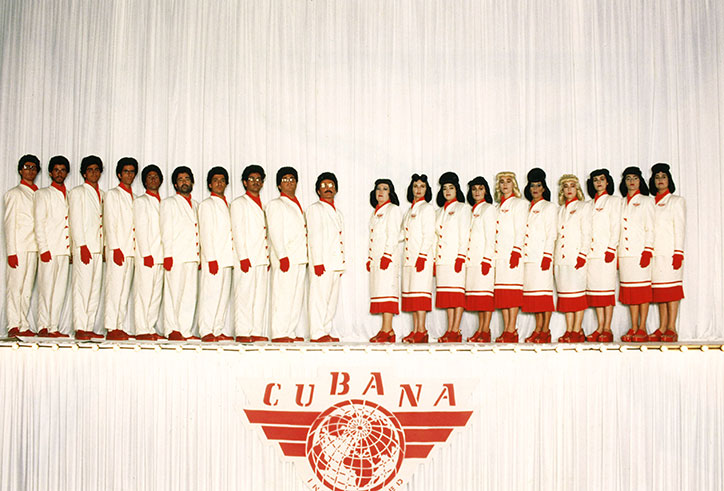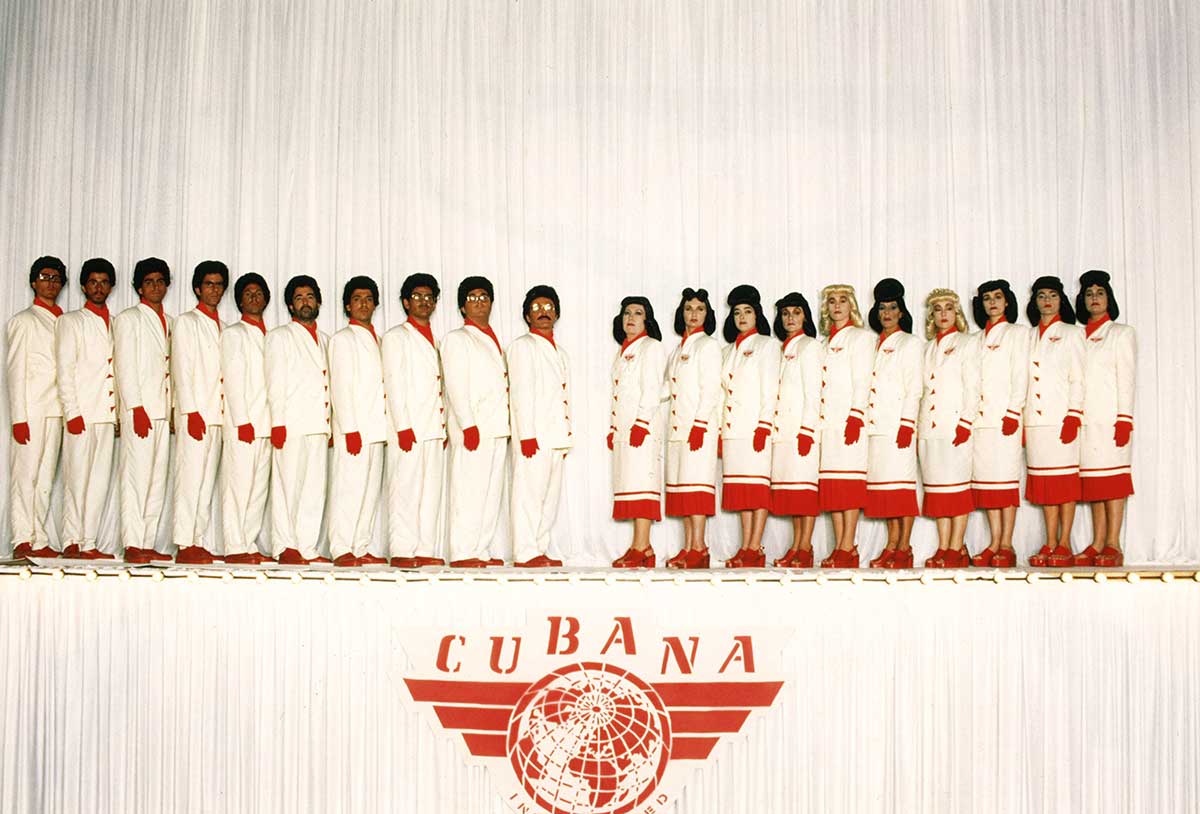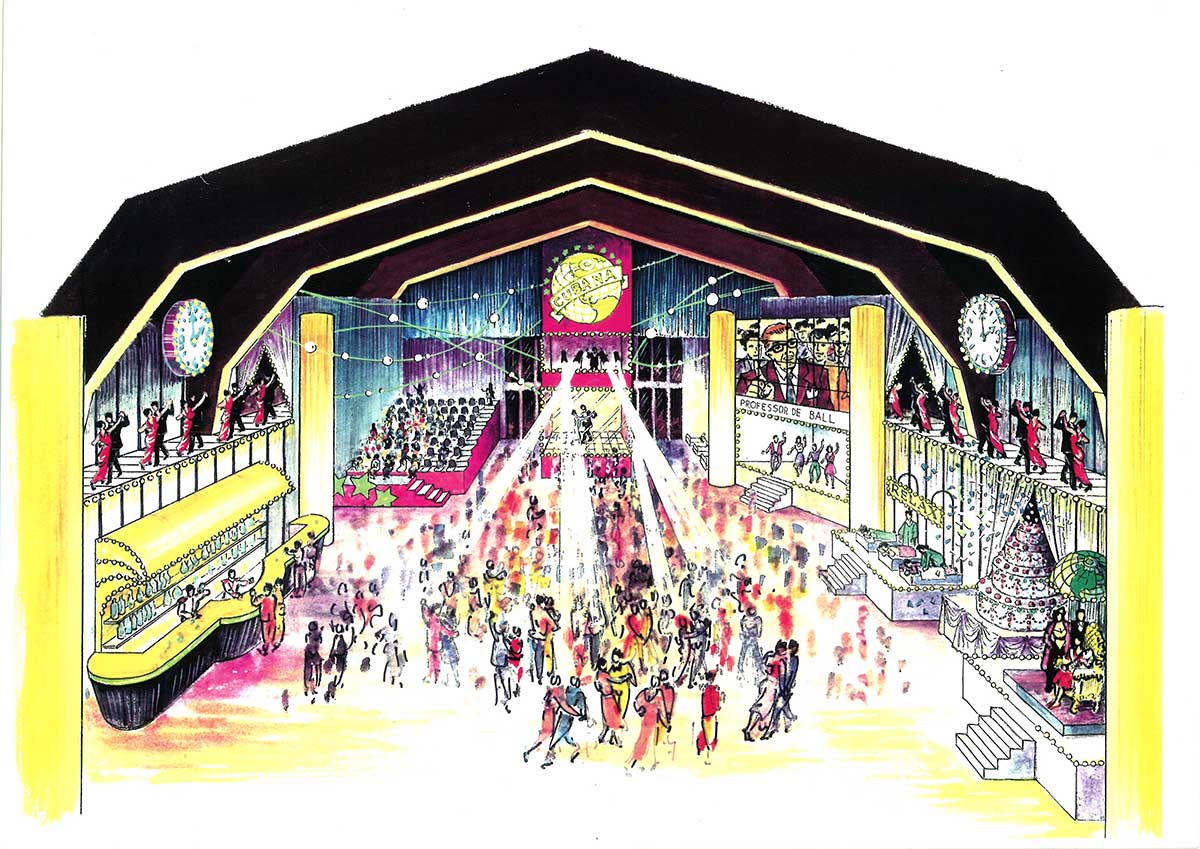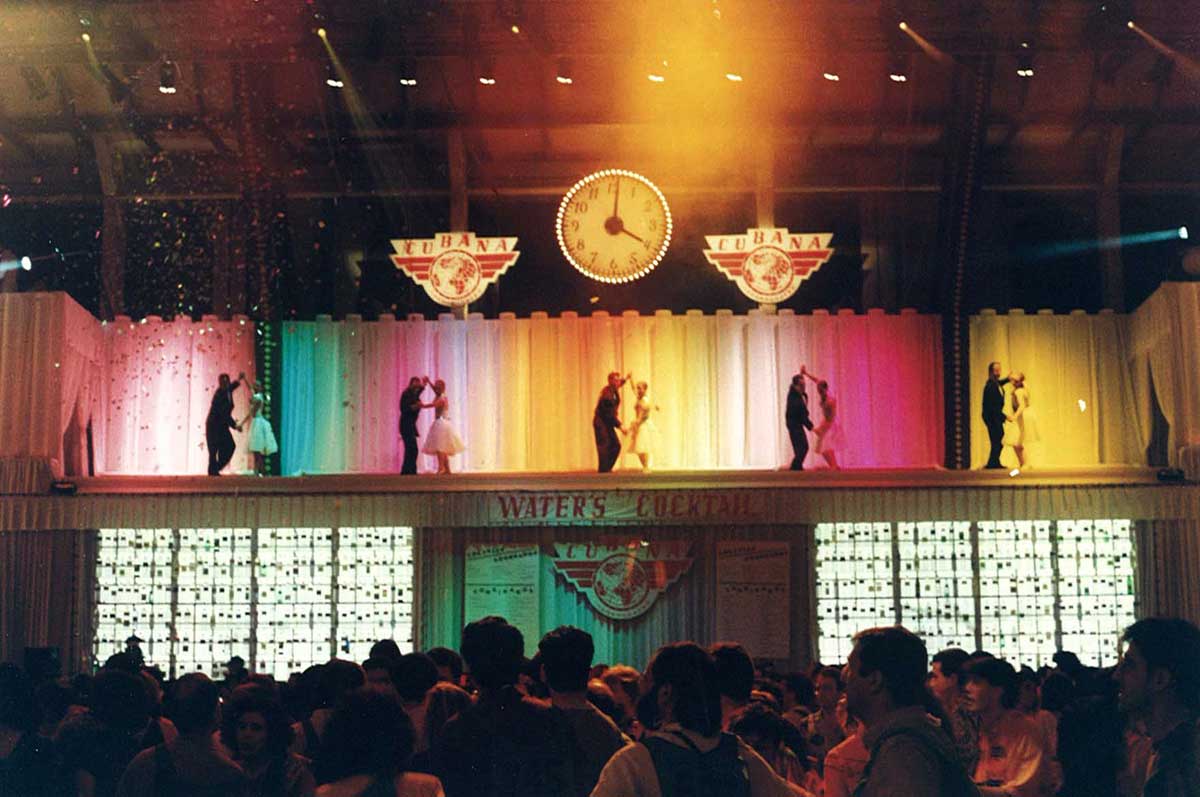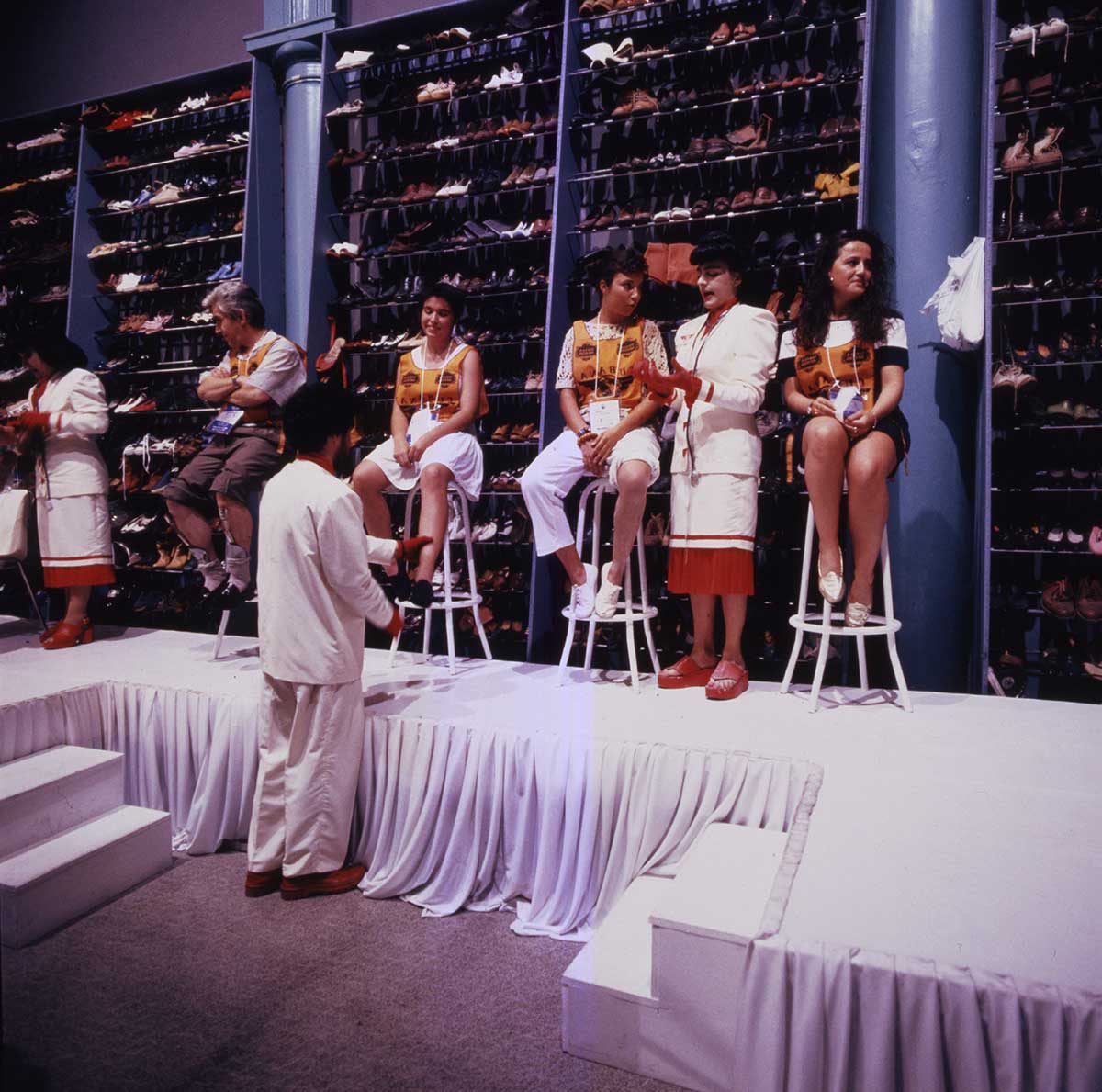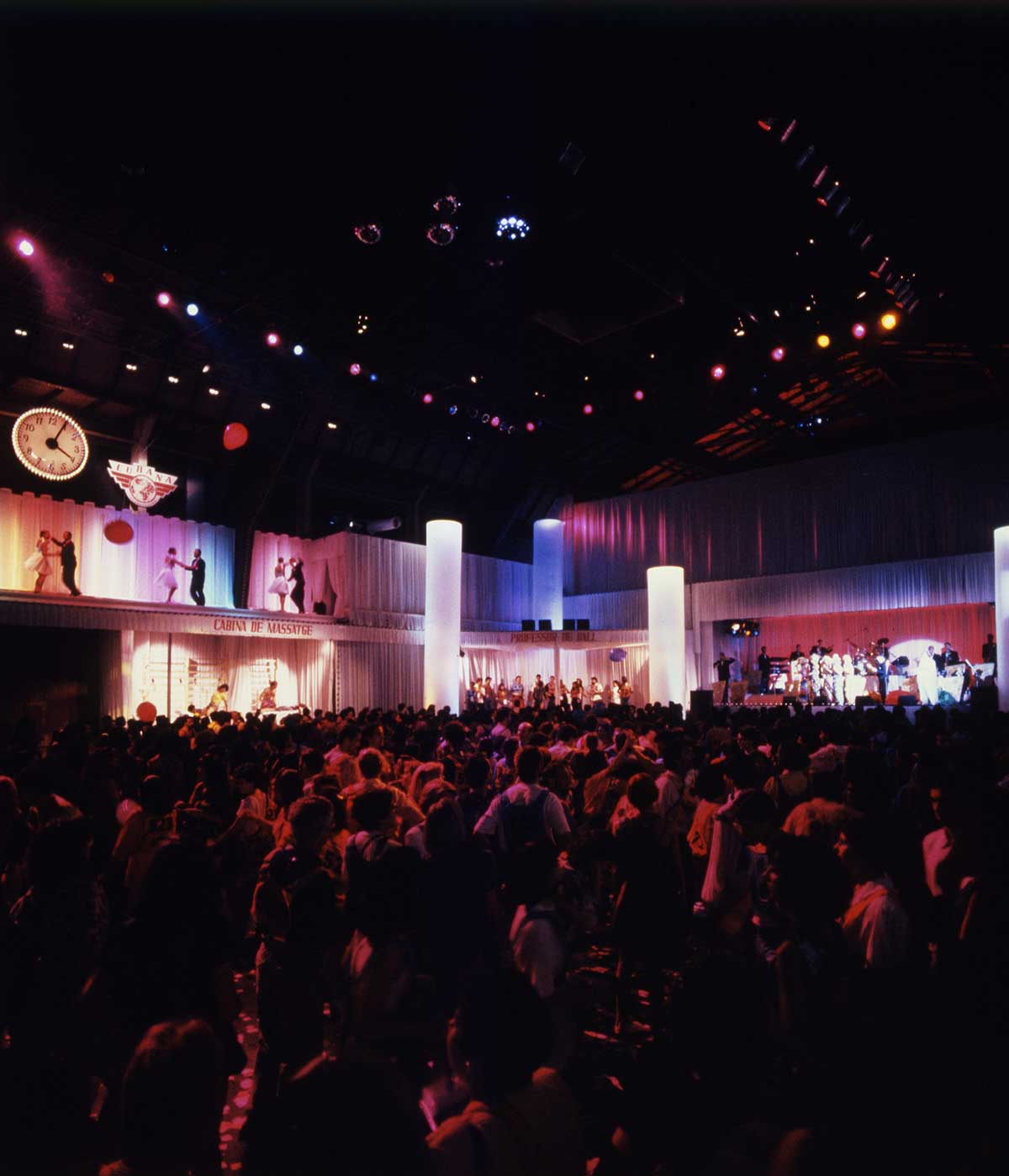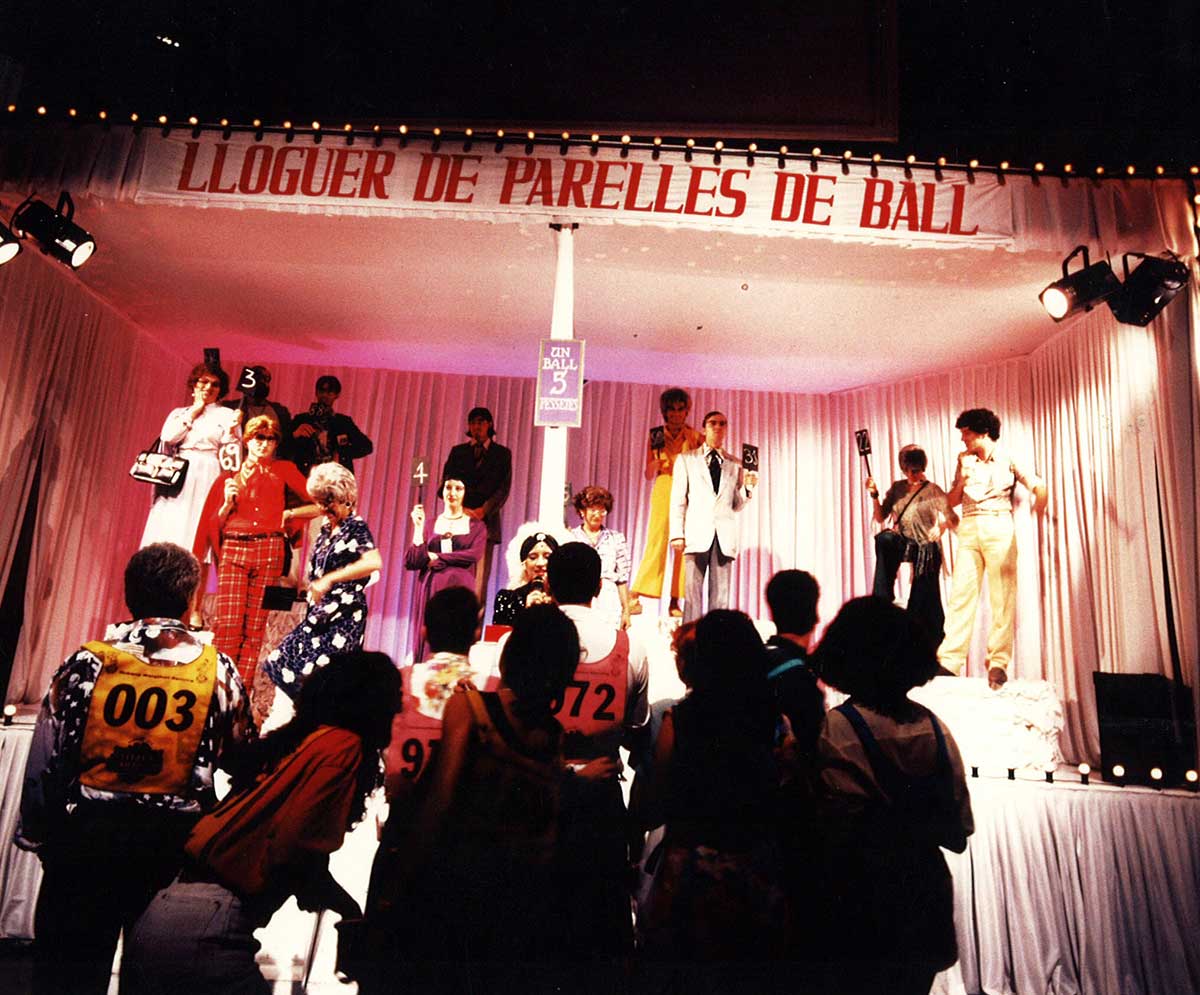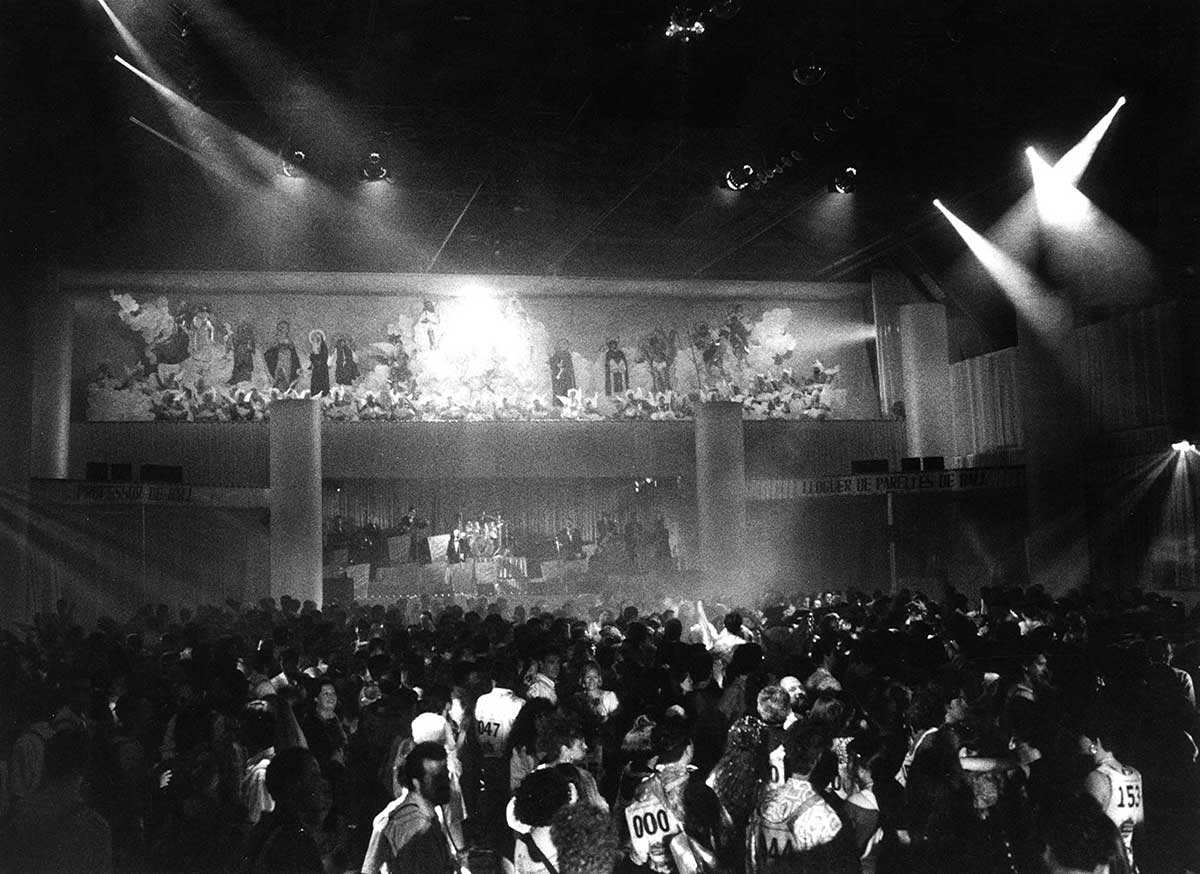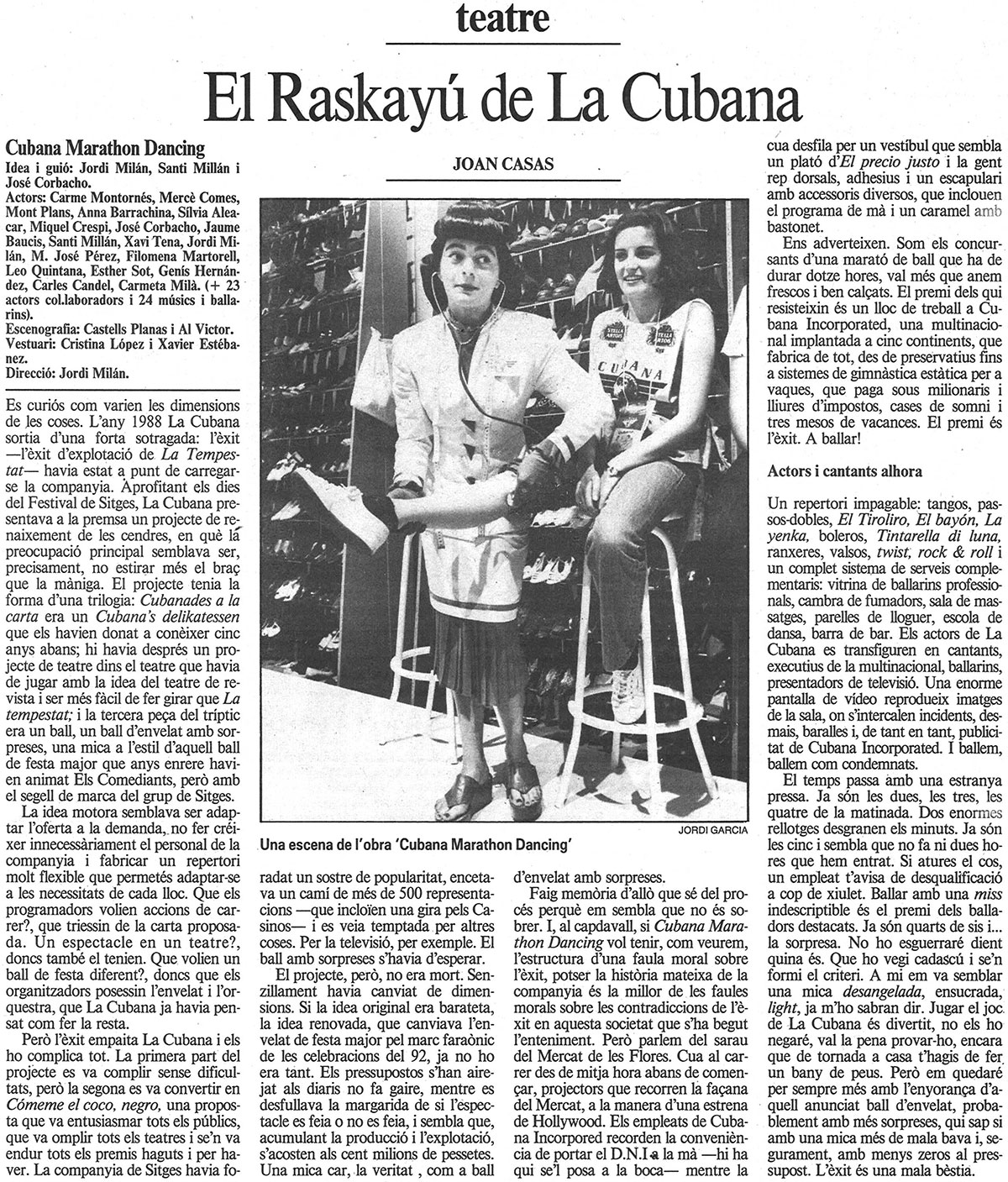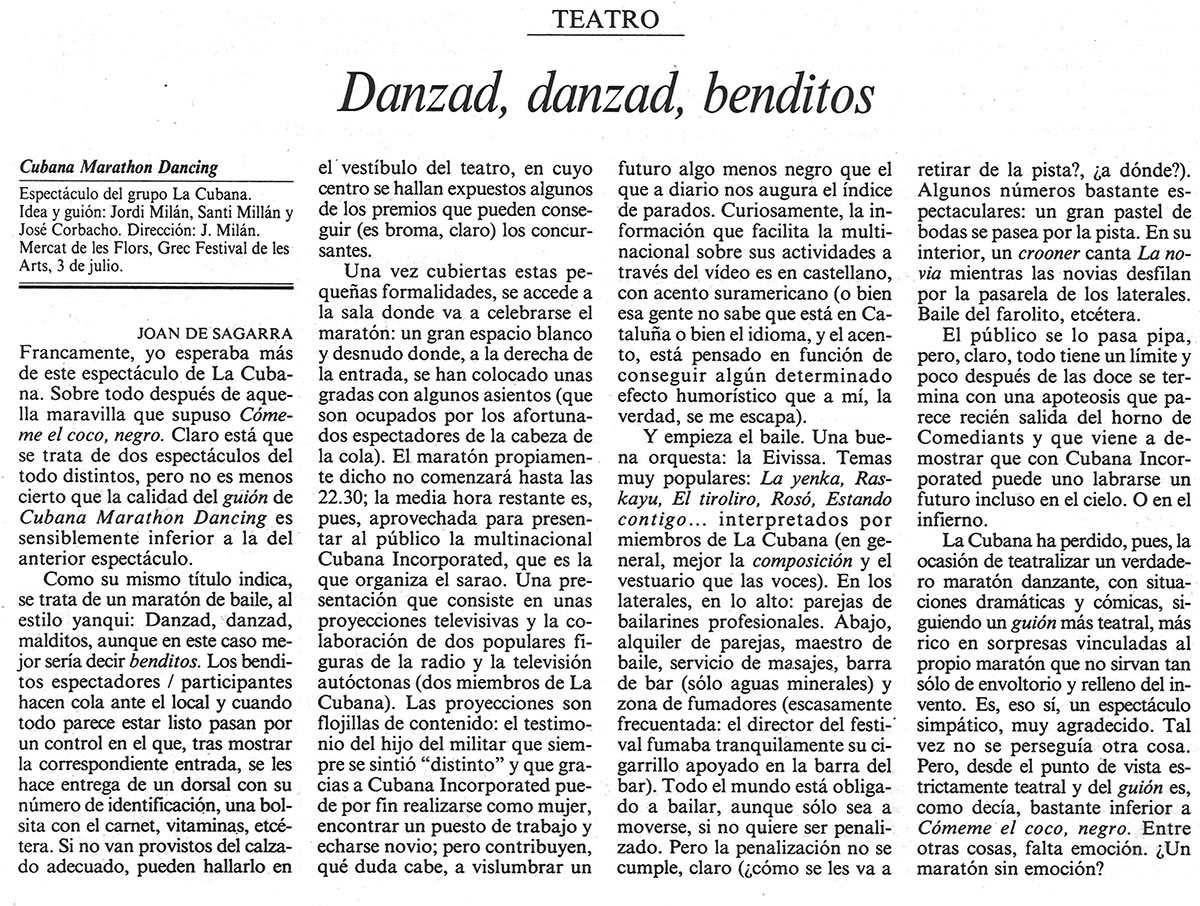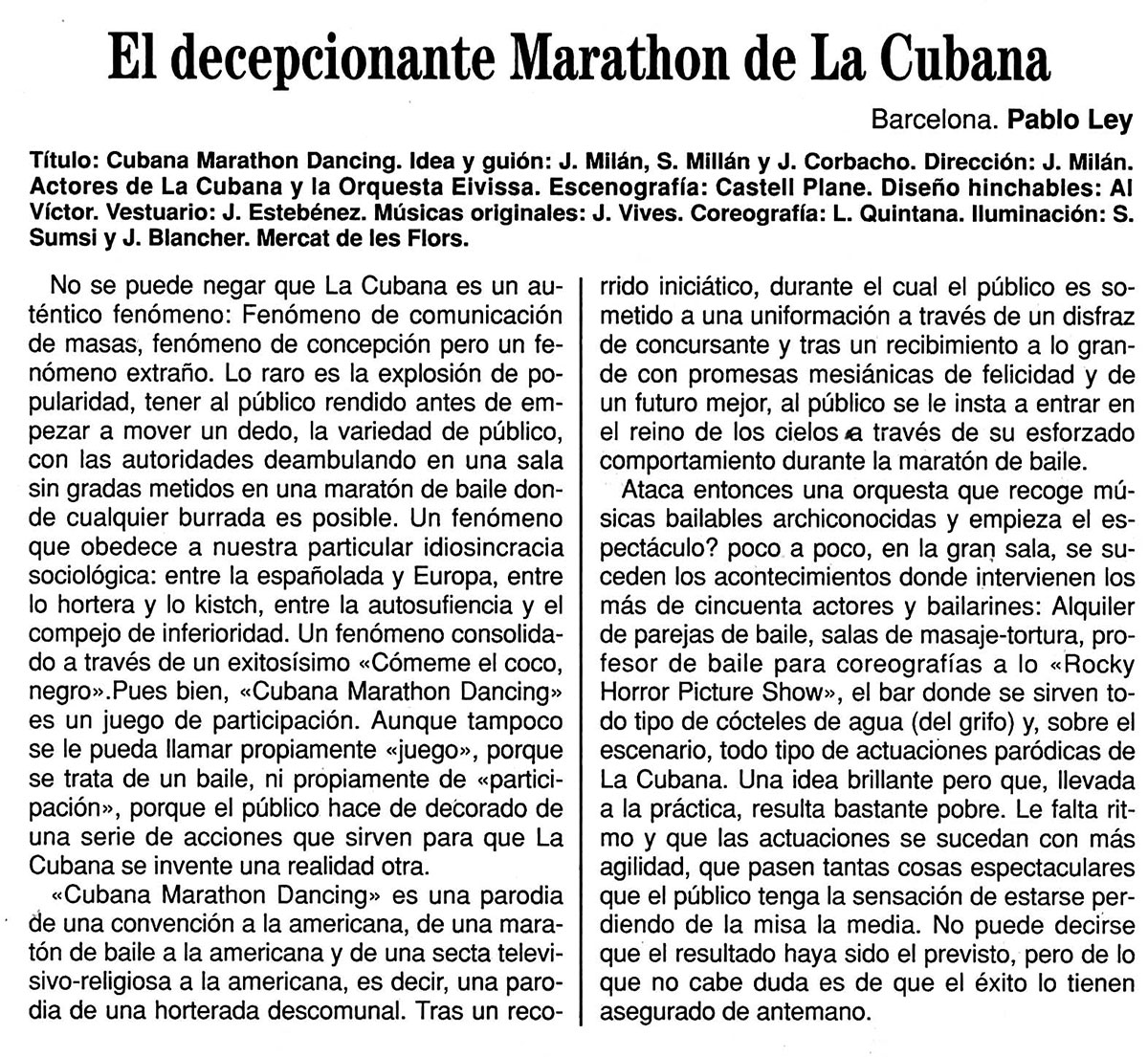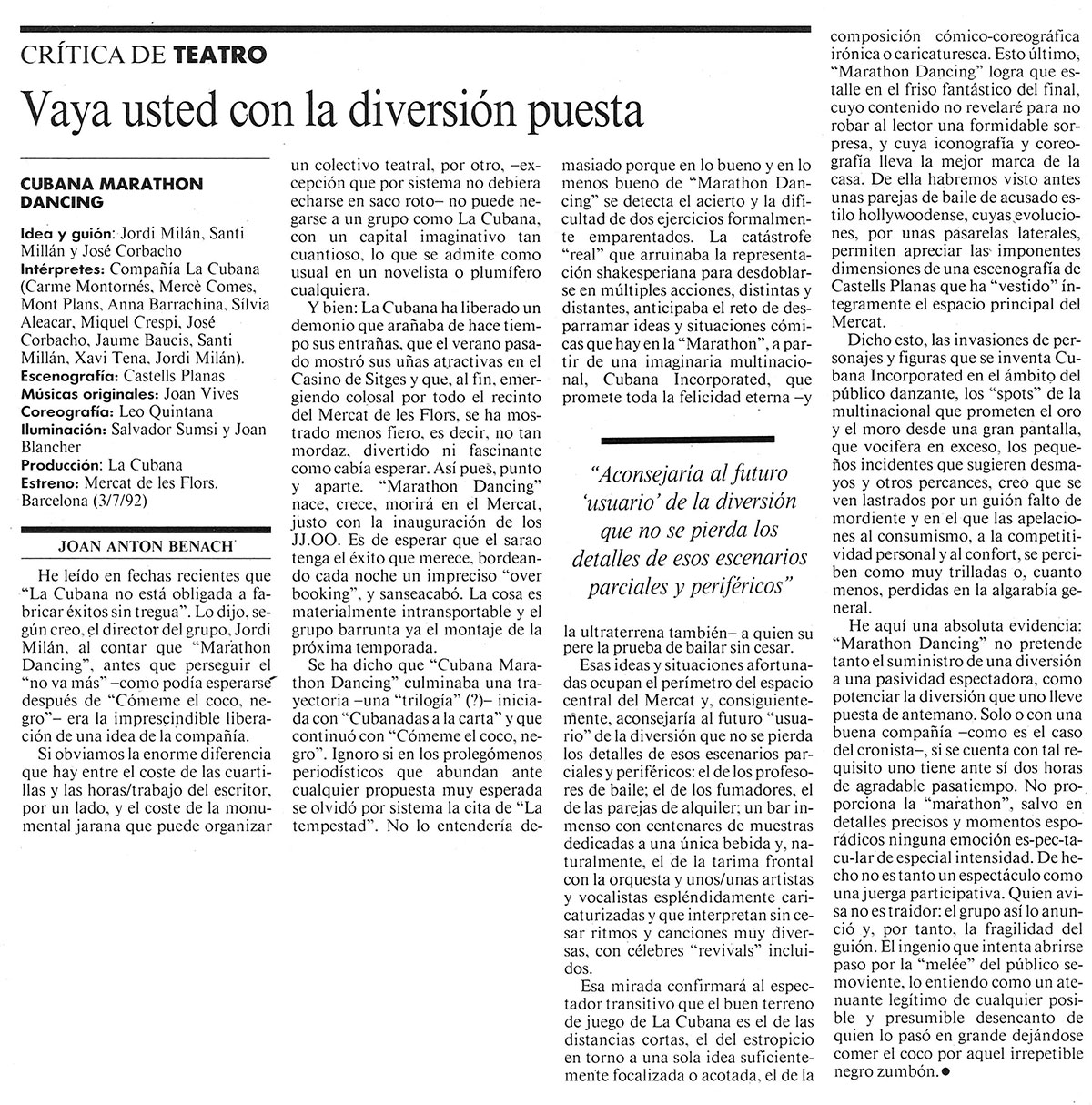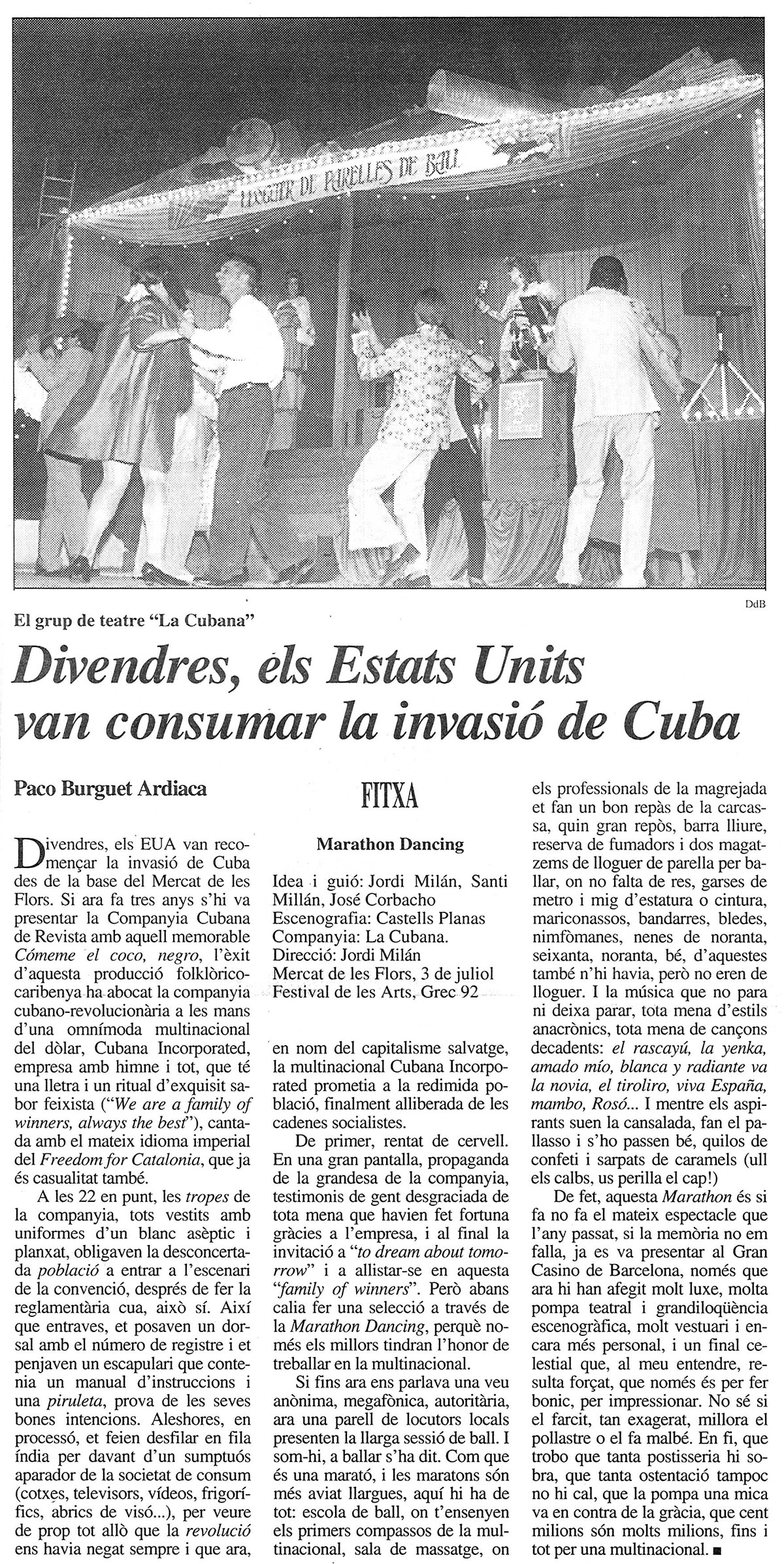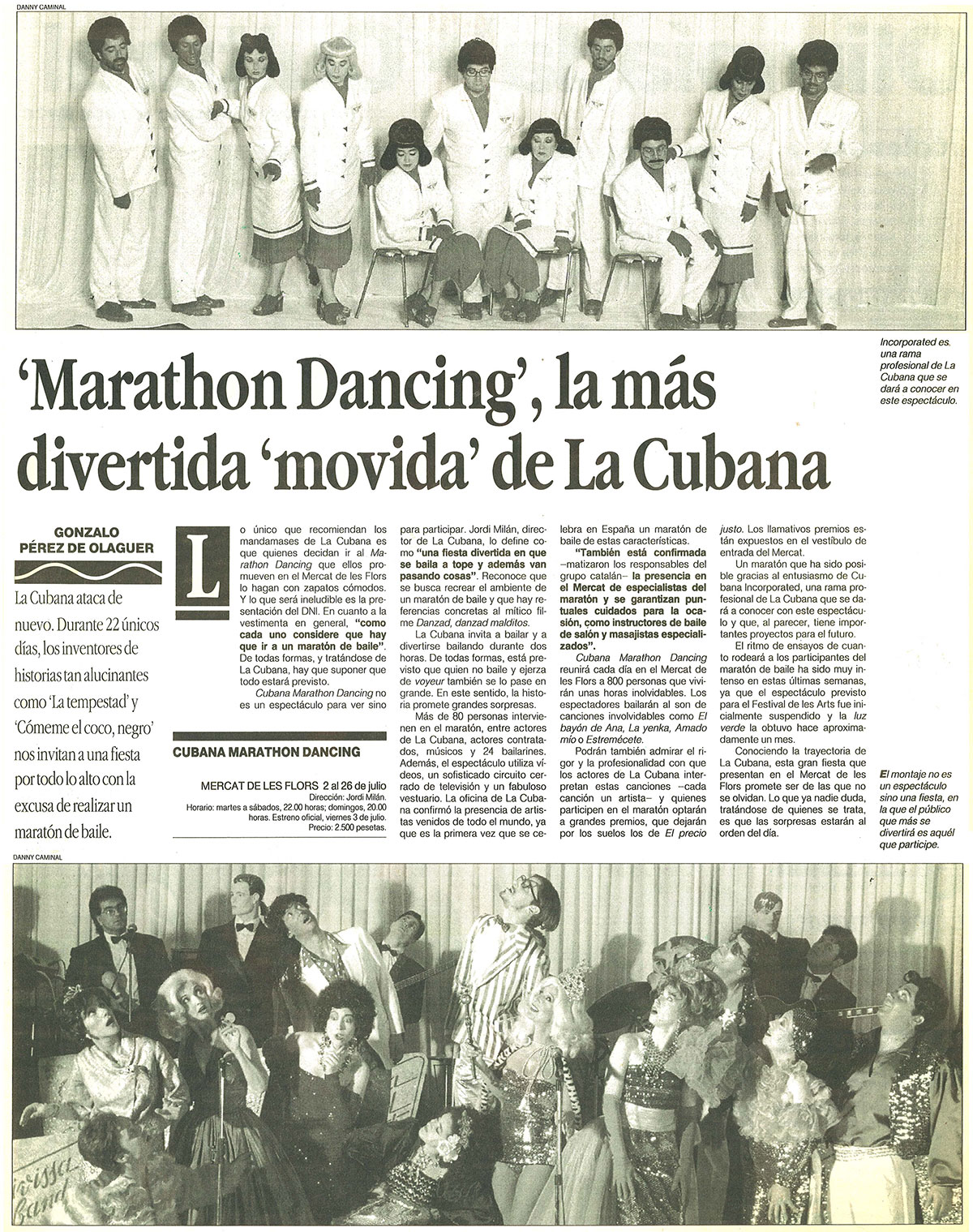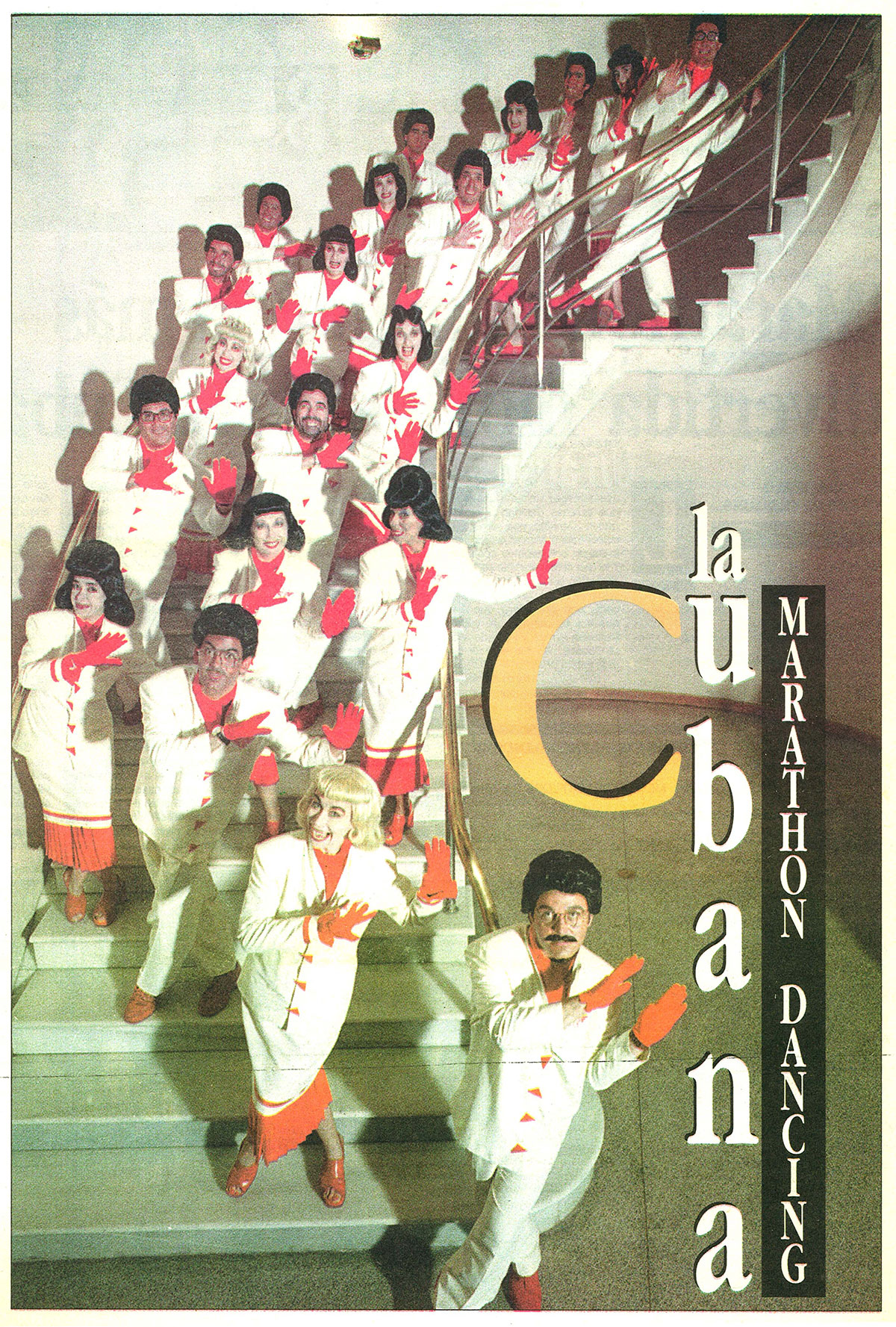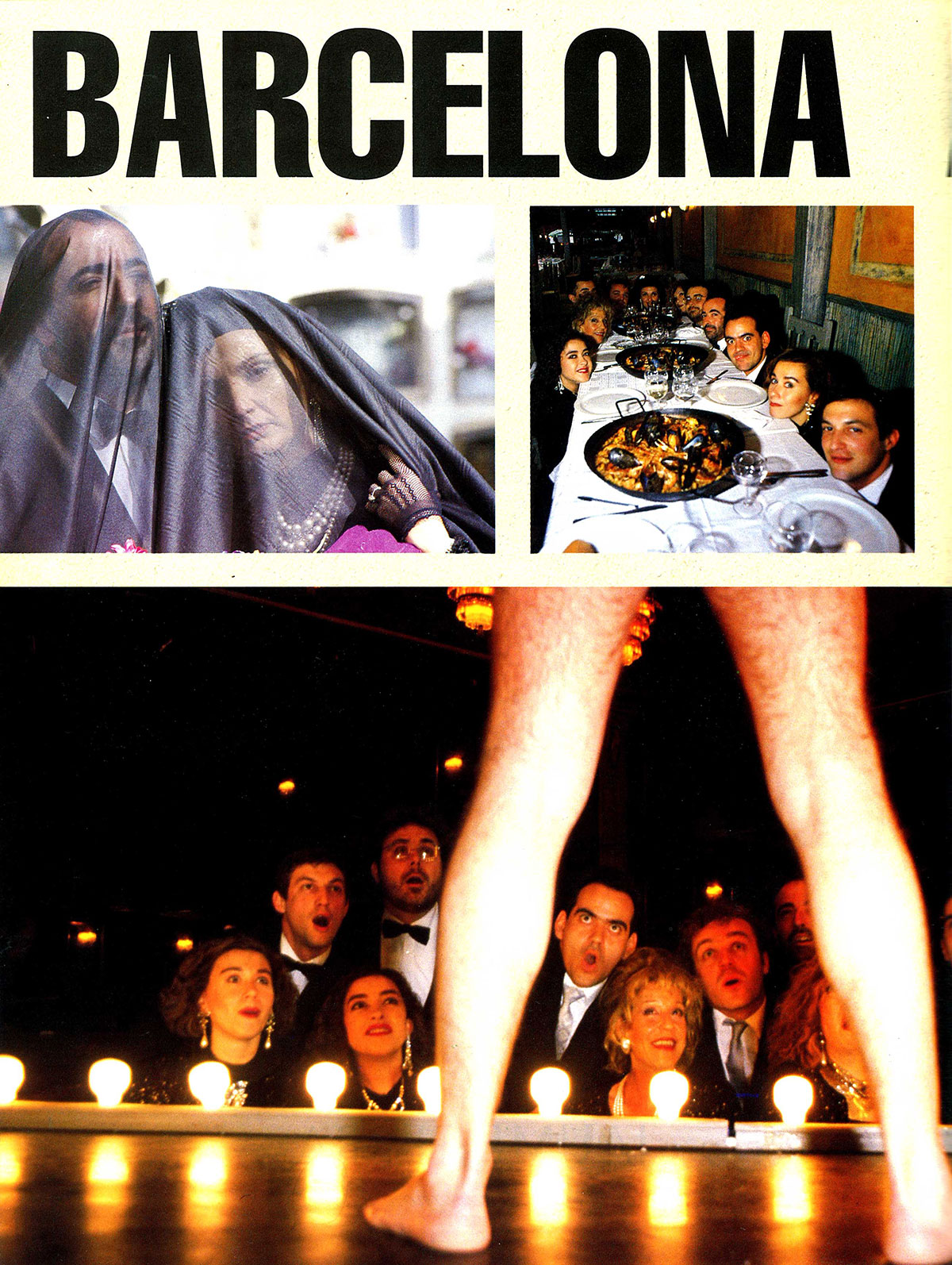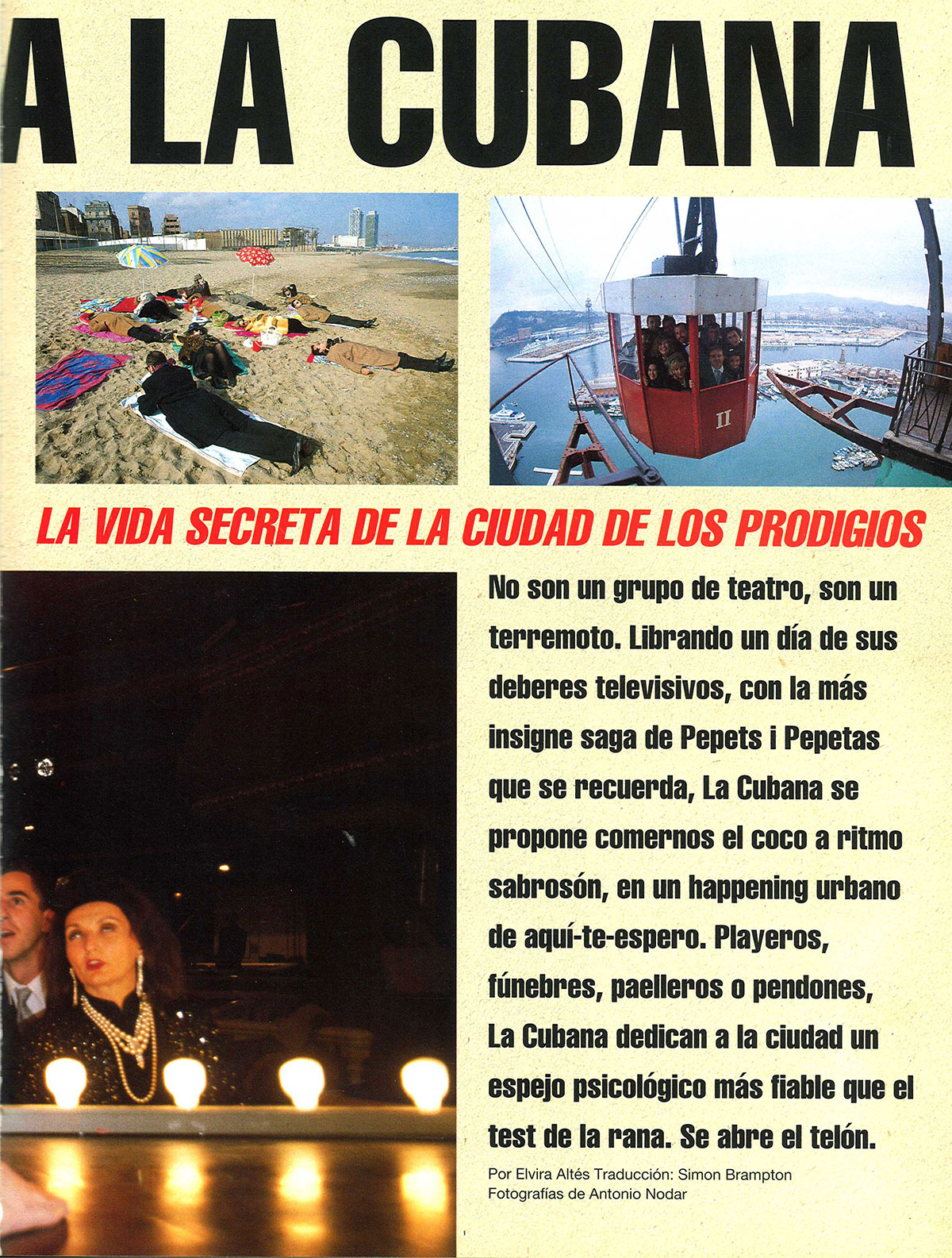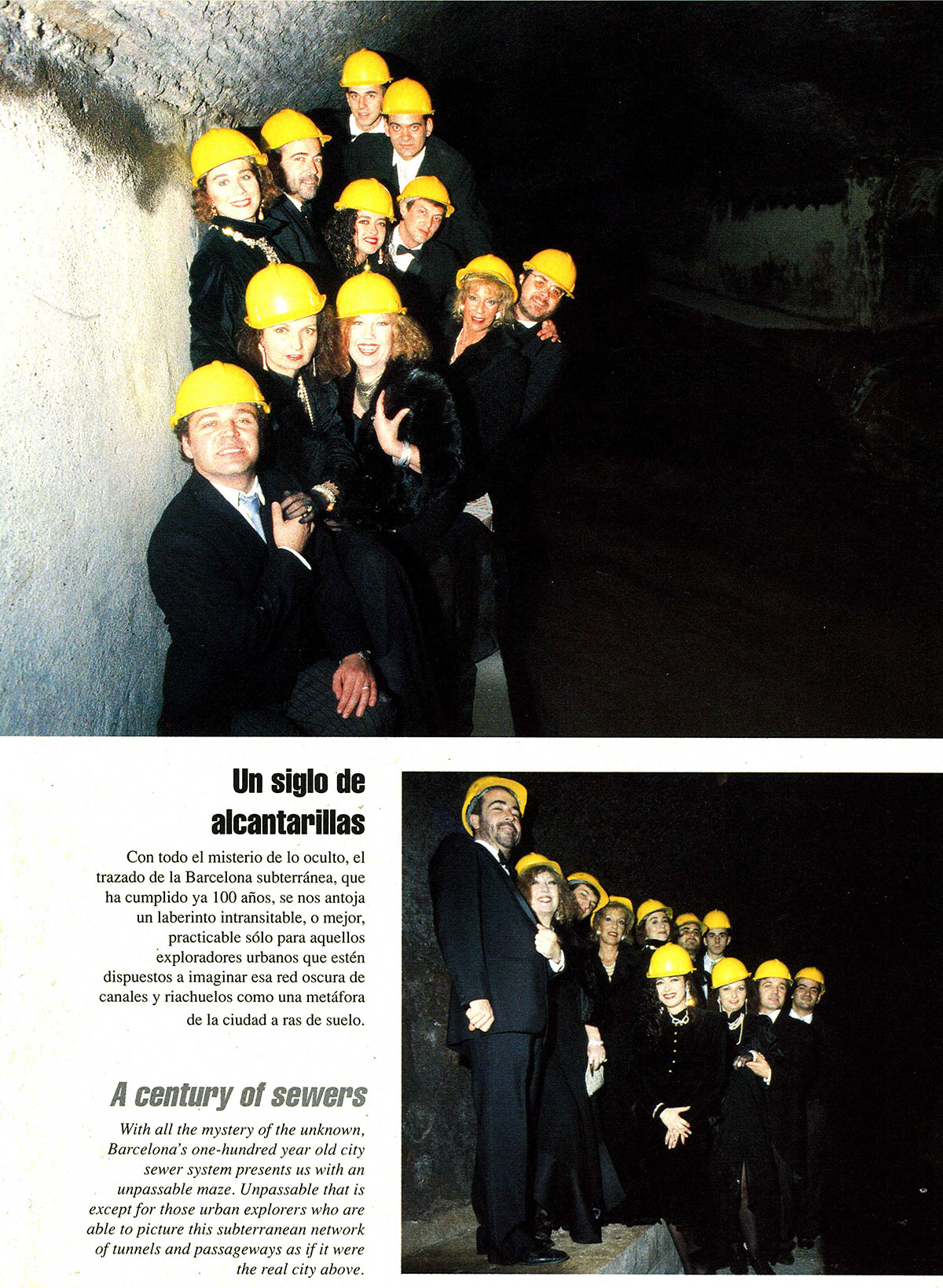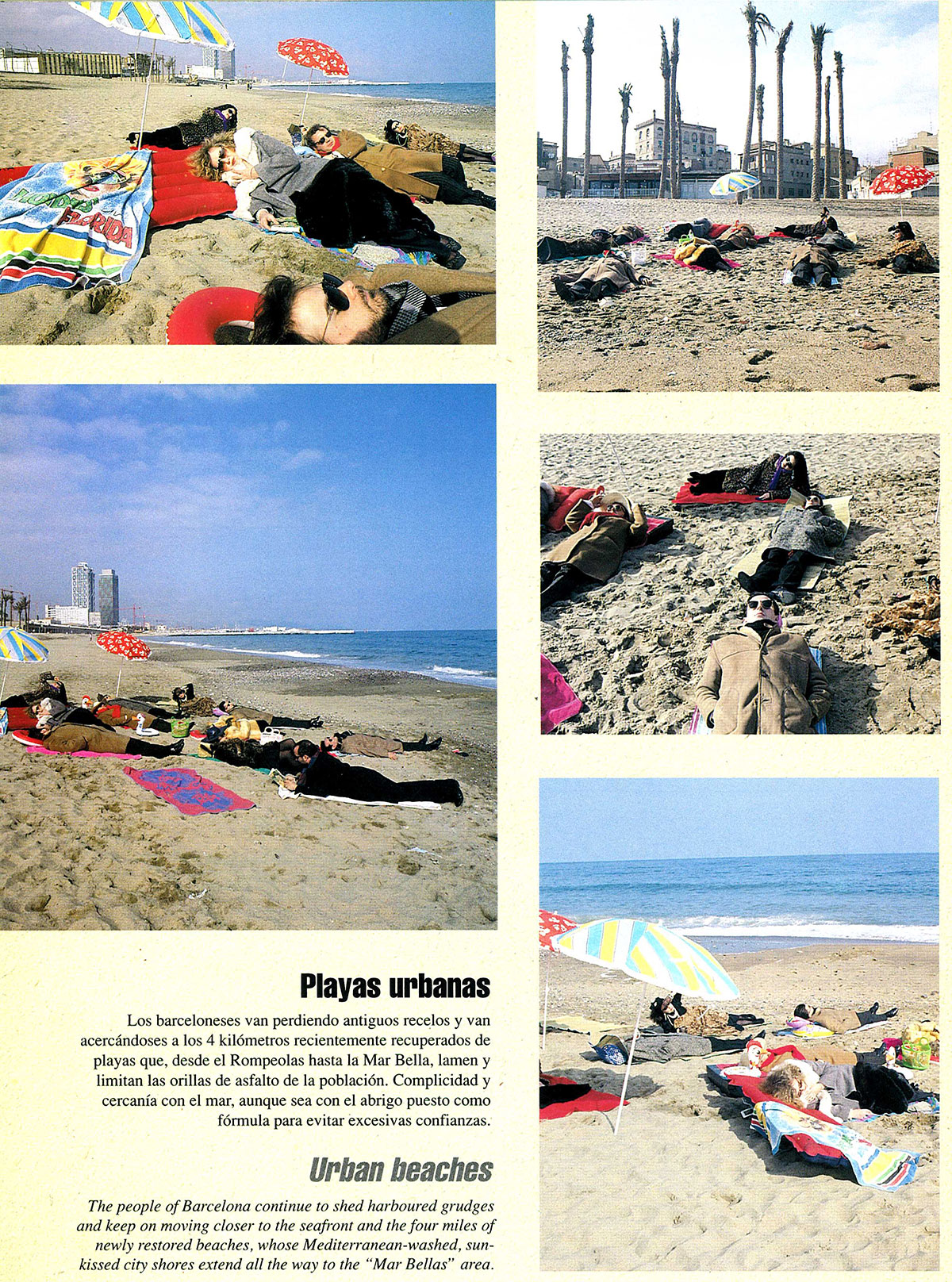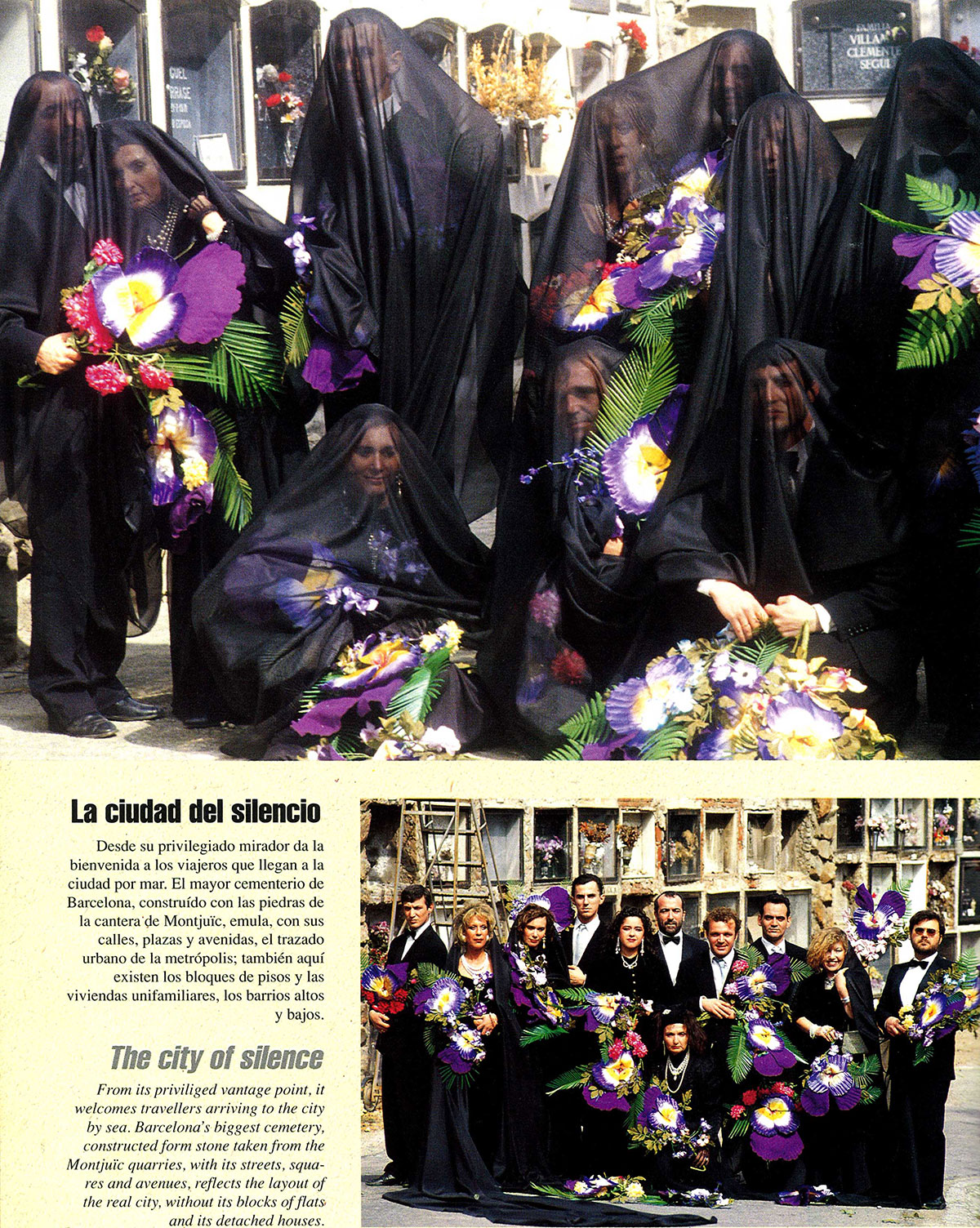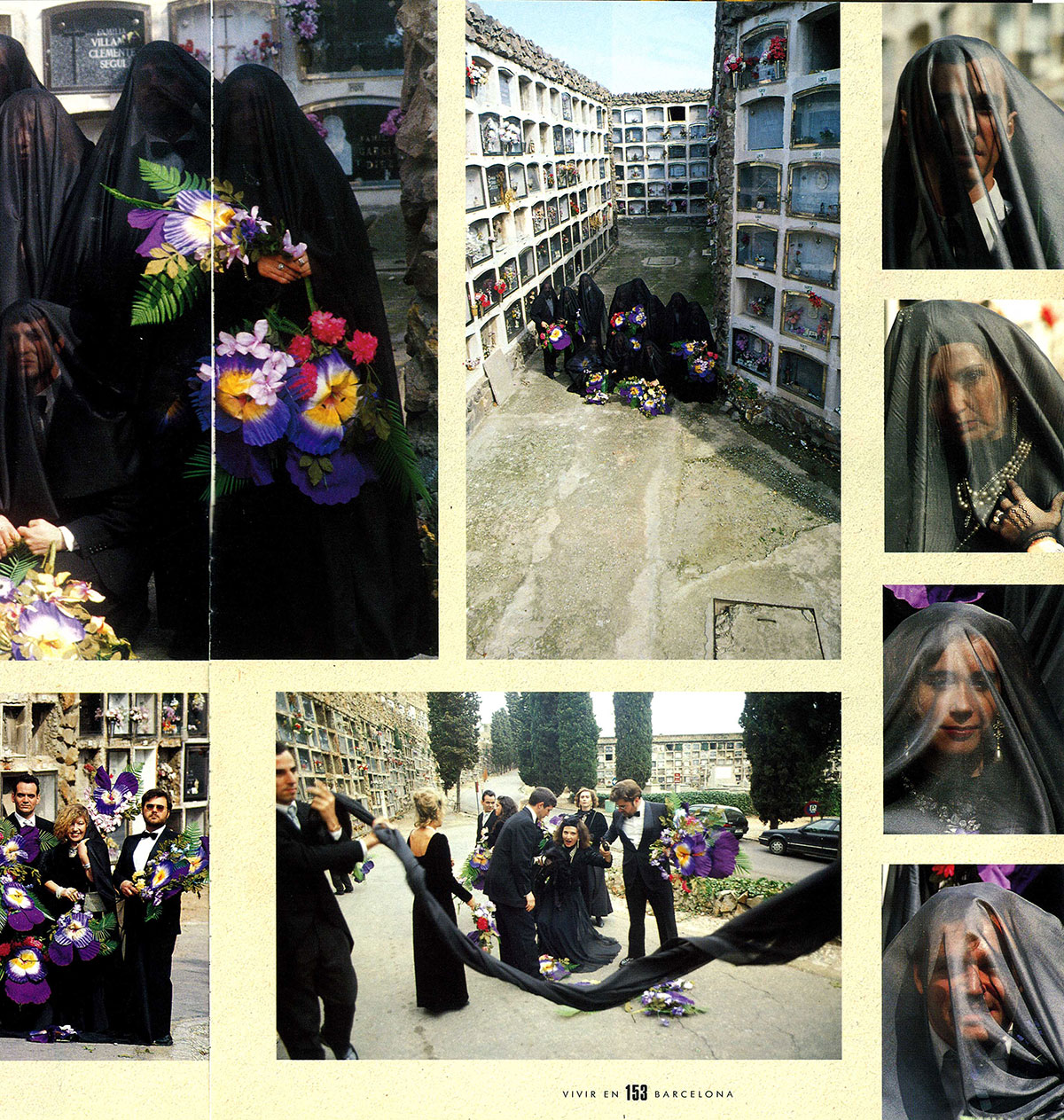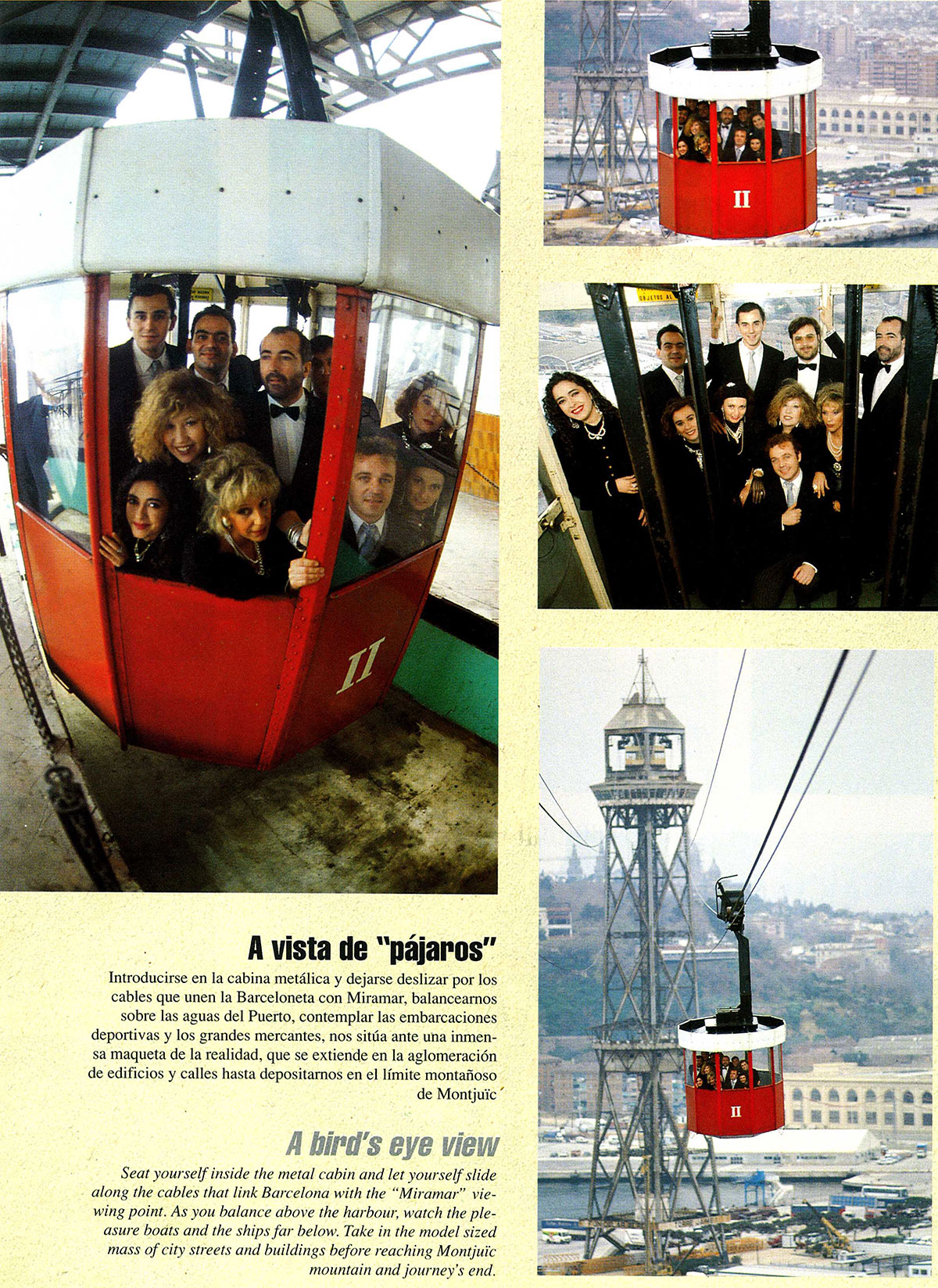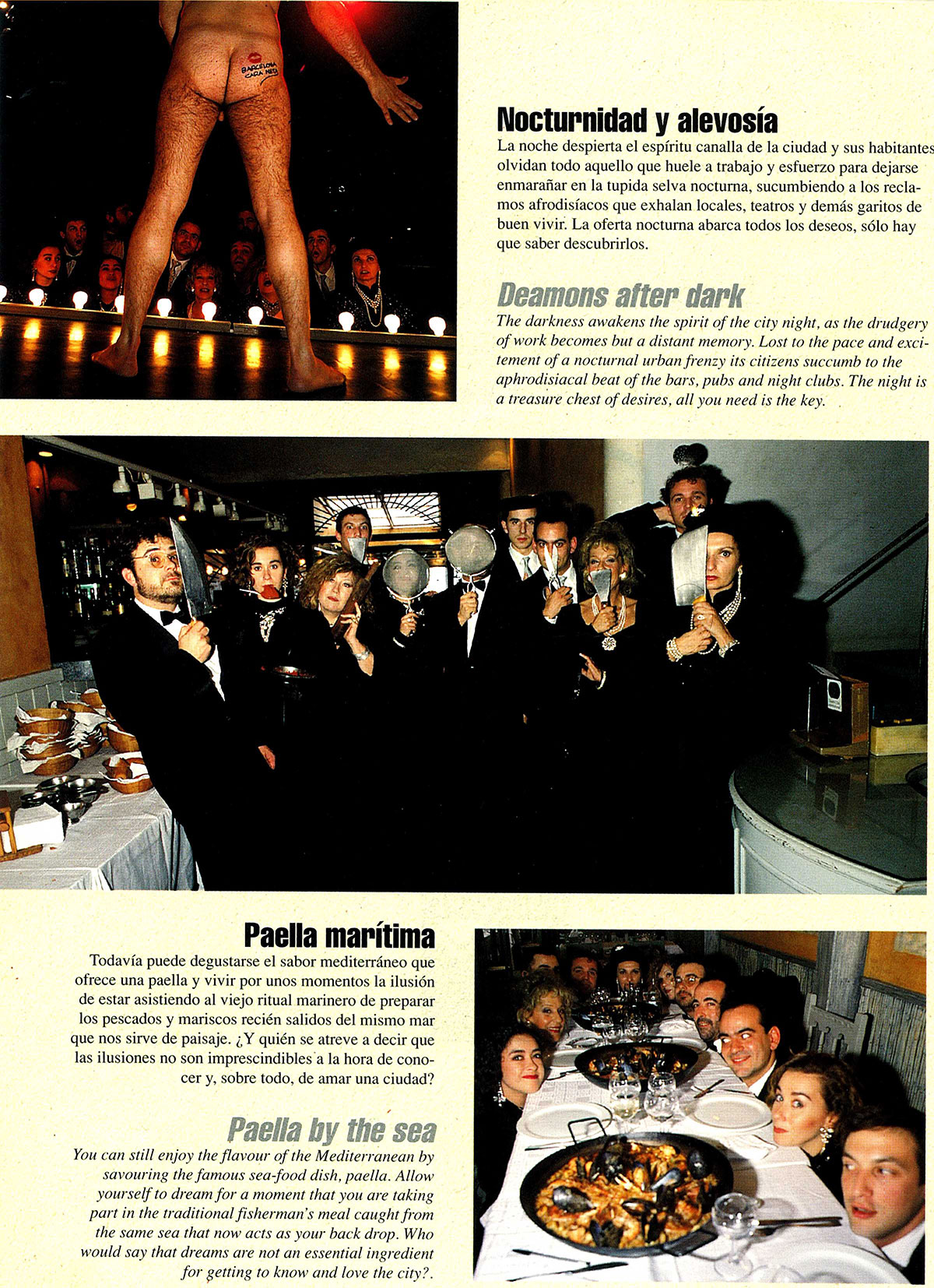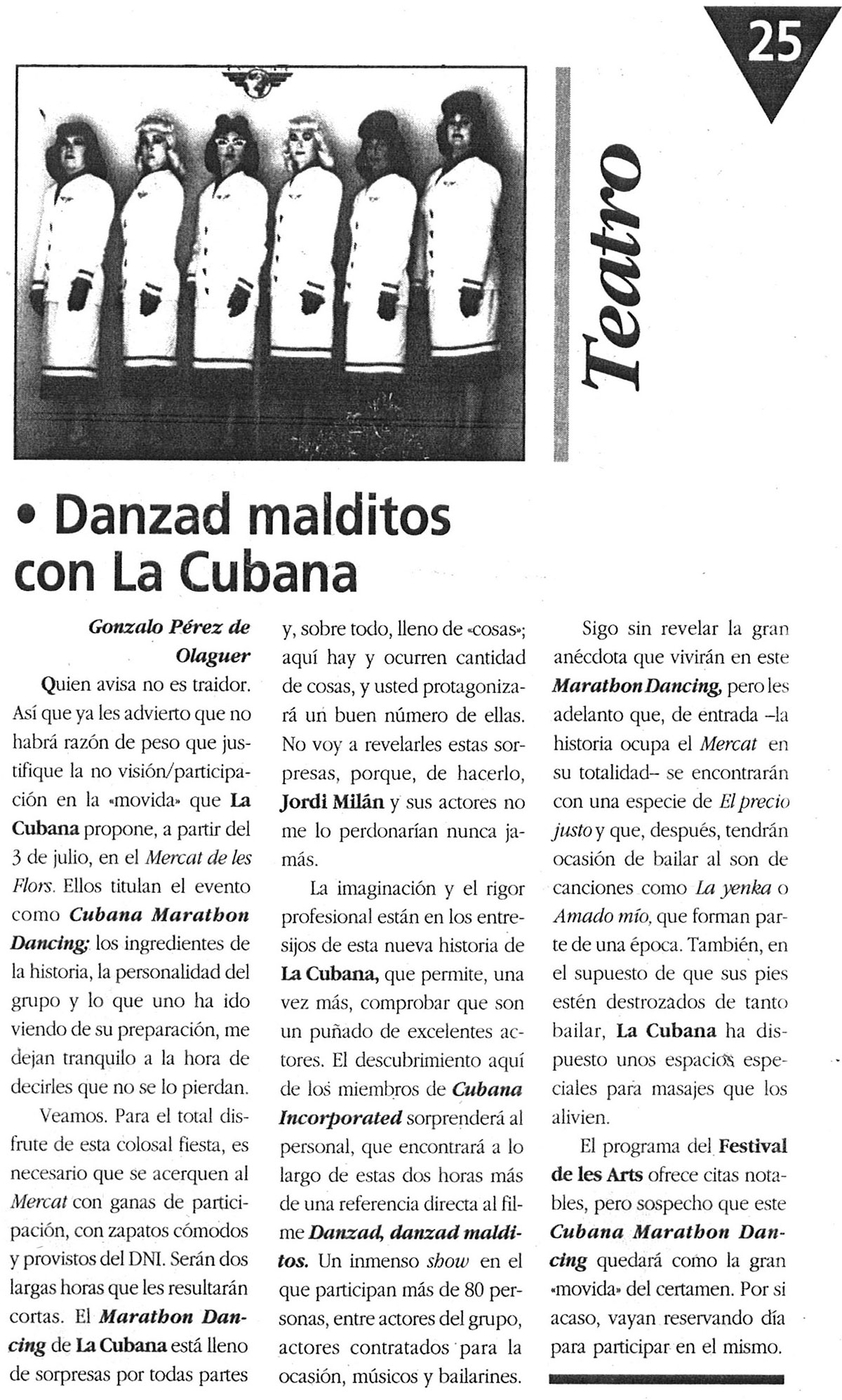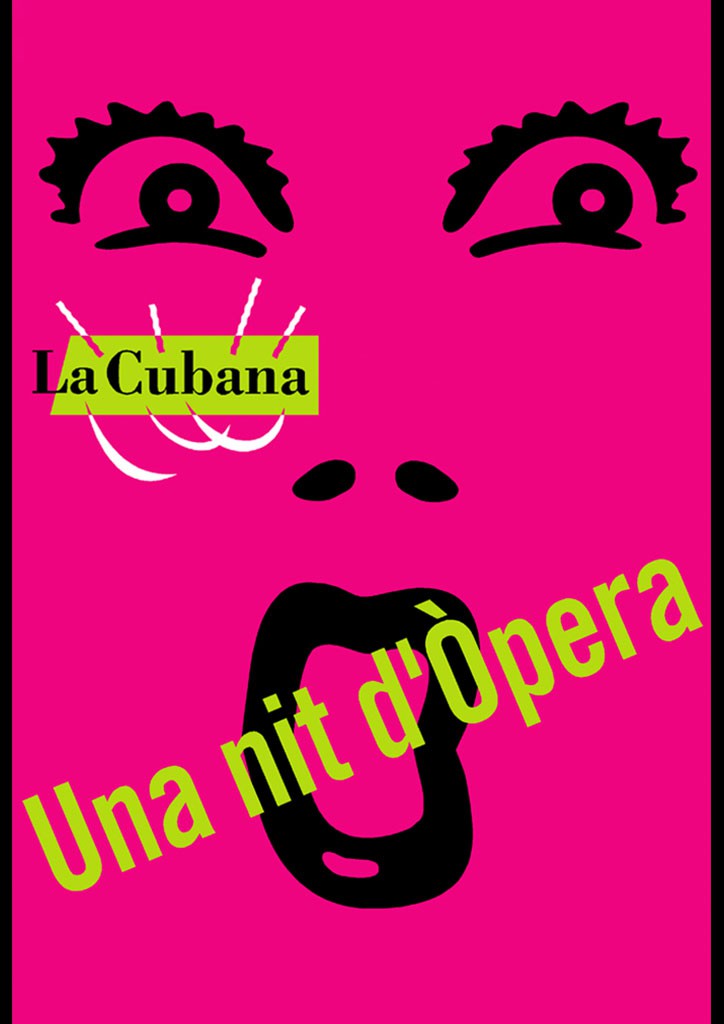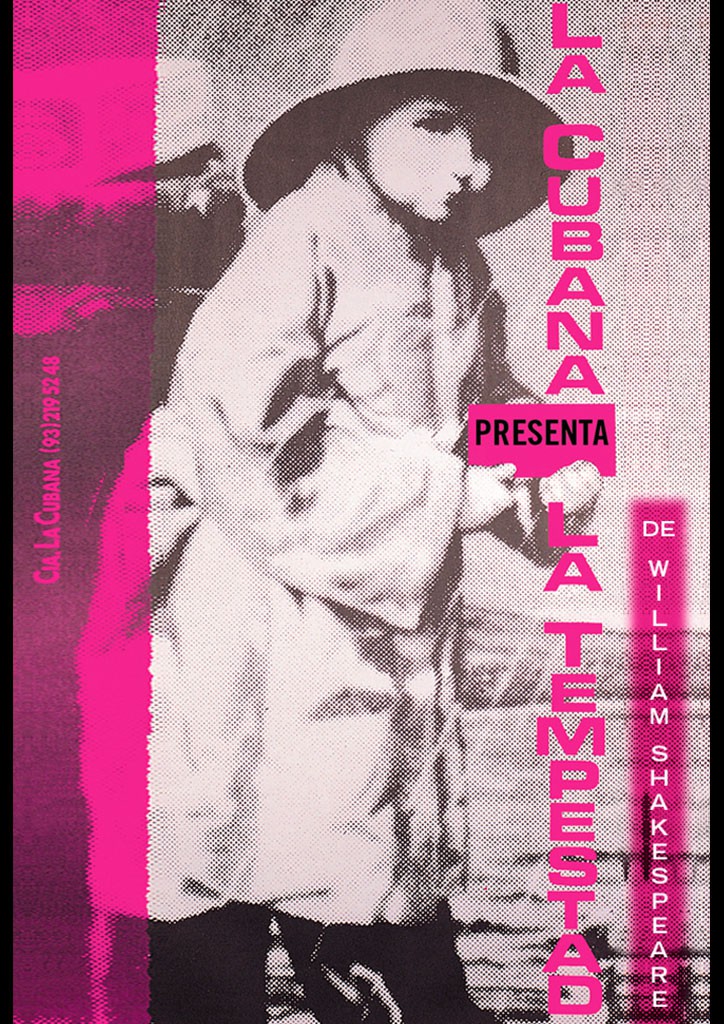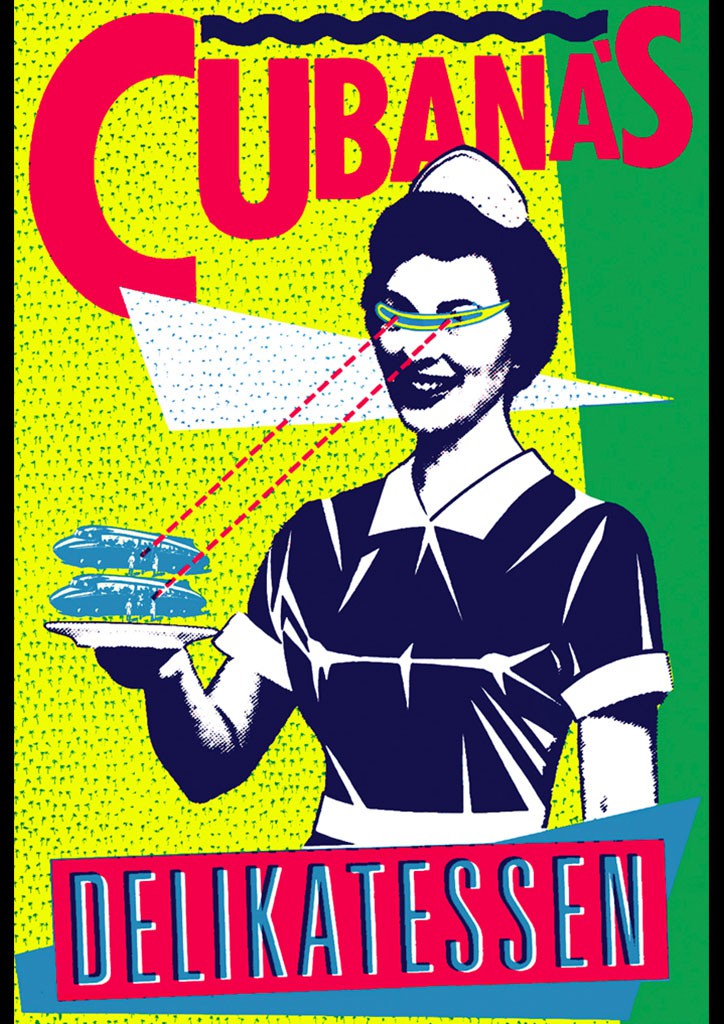Cubana Marathon Dancing
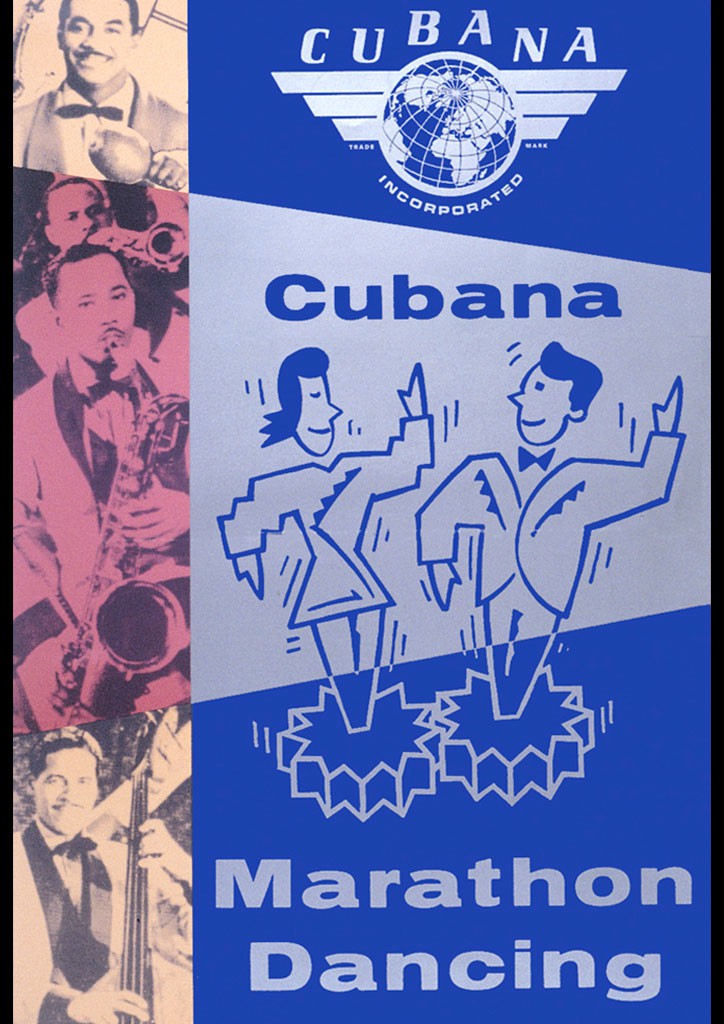
The TrilogyAfter the Tempest (ending 1987), La Cubana suffered a small crisis. Many actors that quit their conventional jobs to join us in this adventure back in 1983 wished to go back to their old occupations and left the company. Only four of us remained in La Cubana: Mercè Comes, Carme Montornés, Mont Plans and Jordi Milán. We wanted to continue on, but: ¿how? Moreover, ¿doing what?
Obviously, we could not underestimate the aspects that had been decisive for La Cubana as it was. For instance, the experimenting on new adapted spaces for the theatre activity, the portrait and the homage to the daily incidents, the game, the surprise, the street actions, the audience involvement, etc. We enjoyed all of it, we wished for all of it. Well, then the best thing to do was to do it all: increase the range of actions and build a repertoire. To do a Ménage a trois, what was to do three shows that would be different one from the other and ready to be presented in three different places, where La Cubana would be able to do all it enjoyed most: Street theatre, conventional theatre, and above all, an involvement game. Therefore, the trilogy was created containing:
- Cubanades a la carta (Cubanades on the menu) (1988) – Street theatre
- Cómeme el coco, Negro (Eat my Cocoa, Nigger) (1989) – Drama inside a drama
- Cubana, Marathon dancing (1992) – A participation show
Idea and story line
Cubana Marathon Dancing is a participation show. It is a dance marathon with an orchestra. A parody of life’s marathon.
An American multinational, Cubana Incorporated, wants to settle in Barcelona and they need to recruit some staff. Instead of a response test or others, the company had organised a dance marathon to choose the applicants. According to Cubana Incorporated in order to win a dance marathon, the appliers need to have similar qualities as those needed to work with the company, such as: concentration, steadiness, effort, tenacity, sacrificing spirit, personal time unawareness. If the applicants are able to dance for 24 hours non-stop, the company will open its doors to a life crammed with luxuries and compensations.
The marathon starts. There are different stages sets: two cabinets where one can rent a partner in case of not having none; or else to change partner for a while if requested; a water-cocktail bar where all one can get is a mélange of different water brands from all around the country; a smoking area; a dance academy for those who don’t know much about dancing; and an exhibition cabinet. Two big clocks tell the time going by. On the stage, the orchestra plays all kind of period songs as if they had dragged them up from the “memory’s mausoleum”. The president of the company is welcomed by singing the company’s hymn.
Time goes by and people are getting very tired, only the fittest resist while being cheered by the cheerleaders who guarantee them again, and again, an unforgettable future. A frantic tension invades the applicants at the final spring. There has been an excess of compulsive energy and the fuses blow and it all becomes paralysed. At last, God comes down. When the light is on again, the audience, listening to angel songs and with smoke up to their waist, begin to see up in the room a heavenly vision: The Holy Trinity, the Mother of God and the Whole Saints escorted by a troupe of saints… No one won the company’s marathon, but everybody had won the other marathon, life’s marathon… God speaks and offers them to start yet another marathon. They can chose between going to hell or to heaven, but in both cases they are going to have to fight for their right to be there, and to improve…People leave the place: A new era has begun for everybody.
You can watch the show here:
PREMIERE: 3th of July 1992 at Mercat de les Flors, Barcelona.
PLACES WHERE IT HAS BEEN PERFORMED: Barcelona
PERIOD: July 1992
PERFORMANCES: 30
SPECTATORS: 30.OOO
IDEA AND SCRIPT: Jordi Milán, Santi Millán and José Corbacho.
CAST:
Carme Montornés
Mercè Comes
Mont Plans
Anna Barrachina
Sílvia Aleacar
Miquel Crespi
José Corbacho
Jaume Baucis
Santi Millán
Xavi Tena
Jordi Milán
And also:
Maria José Pérez
Filomena Martorell
Leo Quintana
Esther Soto
Genís Hernàndez
Carles Candel
Carmeta Milà
Tere Duró
Neus Sanz
Mercè Gascón
Pilar Arcas
Eli Iranzo
Jordi Muixí
Maria Cinta Compte
Joan Carles Alegre
Josep Milán
David Ramírez
Jordi Comelles
Mertxe Cisteró
Ton Plans
Jaume Muntaner
Isidre Olmo
Francesca Piñón
Gregorio Rodríguez
Caterina Solivellas
Eduard Alonso
Eva Lavilla
Julià Farràs
Eduard Sentís
Anika Villalonga
Emma
Dancers:
Lluís Cussó
Francesc de Juan
Montserrat Clemete
Mercè Corbera
Roser Alcrudo
Ma. Rosa Martínez
Noelia Ortega
Ariadna Planes
Montserrat Cussó
Sílvia Martorell
Loli Pérez
Lourdes Llena
Rosa Ma. Martí
Mireia Coll
Jordi Alcrudo
Manuel Erruz
Pasqual Montfort
Bernat Fabregues
Ferran d’Armengol
Enric Grau
Josep Gilo
Miquel Molina
Jordi Pujol
David Segú
ORCHESTRA: Orquestra Eivissa
DIRECTOR: Jordi Milán
TECHNICAL STAFF
Collaborating: Glòria Rognoni
Assistant Director: José Corbacho
Technical Chief: Juanjo Sánchez i Iago Utrilla
Technical Actors: Pere Milán, Xavier Sentís, Ramon Artigas
Stage design: Castells Planas (Cardedeu)
Stage adviser & Artificial inflated fakes: Al Victor
Making of the fakes: Al Victor Produccions
Props and Curtains: Teresa Icart i Begoña Simó
Clocks manufacture: Albert Barreda
Woodwork: Oriol Cassó
Metal structures: Mundus
Wardrobe design: Cristina López
Manufacture and design of the company’s wardrobe: Javier Estébanez
Style adviser and make-up: Joan Alonso
Hairdresser: La Cubana
Company hairpieces: Damaret
Original music: Joan Vives
Choreography: Leo Quintana
Light design: Salvador Sumís, Joan Blancher
Light technician: Xavier Costa
Sound design: Manel Ibañez
Sound technician: Ramon Pérez
Video management: Benecé Procuccions S.L.
Graphic design: Raúl Pascuali
Photographer: Antonio Nodar
Management: Anexa
General Coordinator: Carme Peris
Secretary: Mar López
Public Relations and Press: Victòria Sanz
Assistant to the PR: Montse Homs
Technical Coordination: Miquel Crespi
Executive production: Santi Millán, Jaume Baucis
The great amount of anecdotes passed us by unnoticed, as we had to deal with many problems at that time. Cubana Marathon Dancing was presented at the Mercat de les Flors Theatre in Barcelona. All kind of problems, many of them from political grounds, and completely alien to the company, and which enforced the company to be placed between a rock and a hard place.
